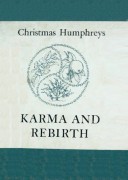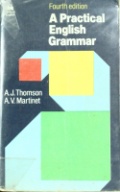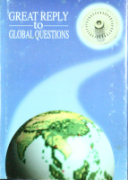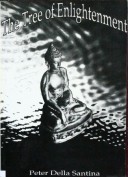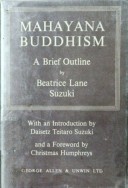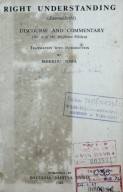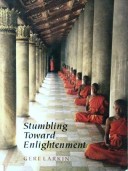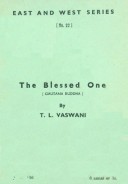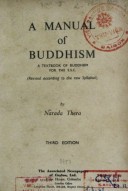Tìm Sách
Sách tiếng Anh-English >> Karma & Rebirth
Thông tin tra cứu
- Tên sách : Karma & Rebirth
- Tác giả : Christmas Humphreys
- Dịch giả :
- Ngôn ngữ : Anh
- Số trang : 104
- Nhà xuất bản : John Murray LONDON
- Năm xuất bản : 1954
- Phân loại : Sách tiếng Anh-English
- MCB : 1210000003545
- OPAC :
- Tóm tắt :
EDITORIAL NOTE
The object of the Editor of this series is a very definite one. He desires above all things that these books shall be the ambassadors of good-will between East and West. He hopes that they will contribute to a fuller knowledge of the great cultural heritage of the East, for only through real understanding will the West be able to appreciate the underlying problems and aspirations of Asia today. He is confident that a deeper knowledge of the great ideals and lofty philosophy of Eastern thought will help to a revival of that true spirit of charity which neither despises nor fears the nations of another creed and colour.
J. L. CRANMER-BYNG
50 Albemarle Street
London, W. I
CONTENTS
Introduction
I The Law of Karma
II Karma in Action
III What Karma is not
IV What Karma Explains
V Some Difficulties Considered
VI Rebirth
VII Who Believes in Karma and Rebirth?
VIII Karma and Rebirth Applied
IX The Ending of Karma and Rebirth
INTRODUCTION
There are many books on the twin doctrines of Karma, and Rebirth, but the tendency of each new publication is to present the subject as more and more mechanical, until so nearly does this timeless, universal Law approximate to a soulless Fate that what is in fact a reign of law becomes a reign of terror, and compassion, described in The Voice of the Silence as ‘the Law of Laws, eternal Harmony’, is utterly ignored. The cause of this degradation is probably twofold; first, the general tendency of Western thought to materialize whatever spiritual principles swim into its ken, and secondly, the increasing departure from the available sources of our knowledge of the doctrine, with the corresponding reliance of each writer on previous textbooks and his own ideas.
In the result, most Western writers on the subject confine themselves to the ‘lower knowledge’ described by the Vedanta philosophers, which is sufficient for those too lazy to awaken in themselves the higher centres from which alone the ‘higher knowledge’ may be seen. But though the law of Karma must, on its own plane, remain to us unknowable, a thoughtful study of the sources from which our knowledge is derived will give the genuine student a vision of essential principles which, if not yet of the ‘higher knowledge’ reserved for the few, may server to awaken the higher centres through which, as windows on to the Absolute, the Truth may finally be known.
The present volume is therefore a humble attempt to reconsider the subject in the light of such ‘authorities’, as are available and from a more spiritual and therefore less mechanical point of view. The doctrine is too old and too widely held to be regarded as the property of any one religion, but the Scriptures of the Hindus and Buddhists provide the oldest available sources, when to these are added, by way of commentary, the writings of H. P. Blavatsky, who was herself trained in Tibetan monasteries, there is available a triple ‘authority’ which, taken as a whole provides the basis for an all-embracing Law which guides and governs the evolution of mankind.
Yet the ultimate authority for any doctrine is not in the written nor in the spoken word, but rather in its own sweet reasonableness, and in the fact that it is ratified by the intuition and seems to ‘work out’ in the day’s experience. Neither God nor man may prove to another that a principle is true. As the Buddha said to the Kalamas: ‘Do not go by hearsay, nor by what is handed down by others, nor by what people say, nor by what is stated on the authority of your traditional teachings… But, Kalamas, when you know of yourselves: “These teachings are good; these teachings, when followed out and put into practice, conduce to the ending of suffering, to peace of mind, to Nirvana”—then accept them.’
In accordance with this view of authority, no authority is claimed for the views of the writers quoted in this essay, and therefore no exact references have been given. Where, however, another’s words express my meaning better or more cogently than my own, I have adopted them for the reader’s benefit. For the rest, there is no authority for any man save the ‘still small voice’ within.
It is an axiom, approved by all experience, that the, more spiritual a doctrine the more is it immediately applicable in daily life, and in presenting Karma and Rebirth against their spiritual background they will be found to be of more immediate application than when Ị regarded as a mere mechanical debit and credit account in the ledgers of some extra-cosmic God. I therefore write in no sense as a scholar, nor as one presenting an interesting belief of the Orient. Rather I write as one who believes the doctrine to be true, and believes that any reconstruction of Western civilization is doomed to failure unless it is based on conscious co-operation with this ultimate and all-embracing Law. As Loftus Hare wrote: ‘A man becomes what he does. Can this doctrine be refuted? If it be true it is the most important and the most neglected truth in the world.’ One might add, that if it be false it is strange that none has yet attempted to prove its falsity, nor offered a better solution of the ‘Riddle of Life’.
But because it is true the doctrine is intensely difficult. Those who imagine that the fundamental truths of existence can be described on the plane of the intellect have yet to discover that these tremendous principles are not facts, as pebbles on the beach are facts, but cosmic forces compared with which the power and grandeur of the Niagara Falls are insignificant. In the Brihad Upanishad, one of the oldest Hindu Scriptures, Karma is referred to as ‘a mighty secret’, which only the initiated may know. In the Suita Nipata, one of the oldest Buddhist Scriptures, Ananda says of Karma to the Blessed One, ‘How deep is this Causal Law, and how deep it seems! And yet do I regard it as quite plain to understanding.’ To which the Buddha replied, ‘Say not so, Ananda, say not so! Deep indeed is this Causal Law, and deep it appears to be. It is by not knowing, by not understanding, by not penetrating this doctrine that the world of men has become entangled like a ball of twine… unable to pass beyond the Way of Woe, and the ceaseless round of Rebirth.’ Even to our intelligence the ramifications and interrelations of cause and effect in all the departments of the Universe are so immensely complex that none would presume to understand them; how infinitely more enlightened must that being be whose understanding can embrace this Law at the fountain head of its eternal majesty!
Only by studying, and to some extent grasping, an outline of the Wisdom of which Karma and Rebirth are part can the meanest vision of the doctrine be attained, and even then it is difficult to examine it apart horn the Wisdom itself from which, as sunlight in the air, it is inseparable. Yet the difficulty is largely of our own making. For centuries the Western mind has been building up an utterly false notion of a separate ‘I’, and it is hard for us to grasp a view of existence in which the separative self is viewed as an illusion and the father of all suffering. It follows, whether or not the idea be pleasing to the scholar mind, that only he who treads the Way which leads to the end of separative self-hood will attain to understanding of the Wisdom wherein self as something separate, can have no abiding-place.
Study, deep study, quiet meditation on the living principles revealed in that study, and the constant, self-regardless application of those principles to daily life, these alone will provide the final ‘proof’ of the laws of Karma and Rebirth, and only he who knows them thus will be in a position to offer to the West, by the written and the spoken word and by the force of character, the Wisdom of which the West has so abundant and so urgent need.
C. H.
London
October 1942
 Facebook
Facebook
 Google
Google
 Google+
Google+
